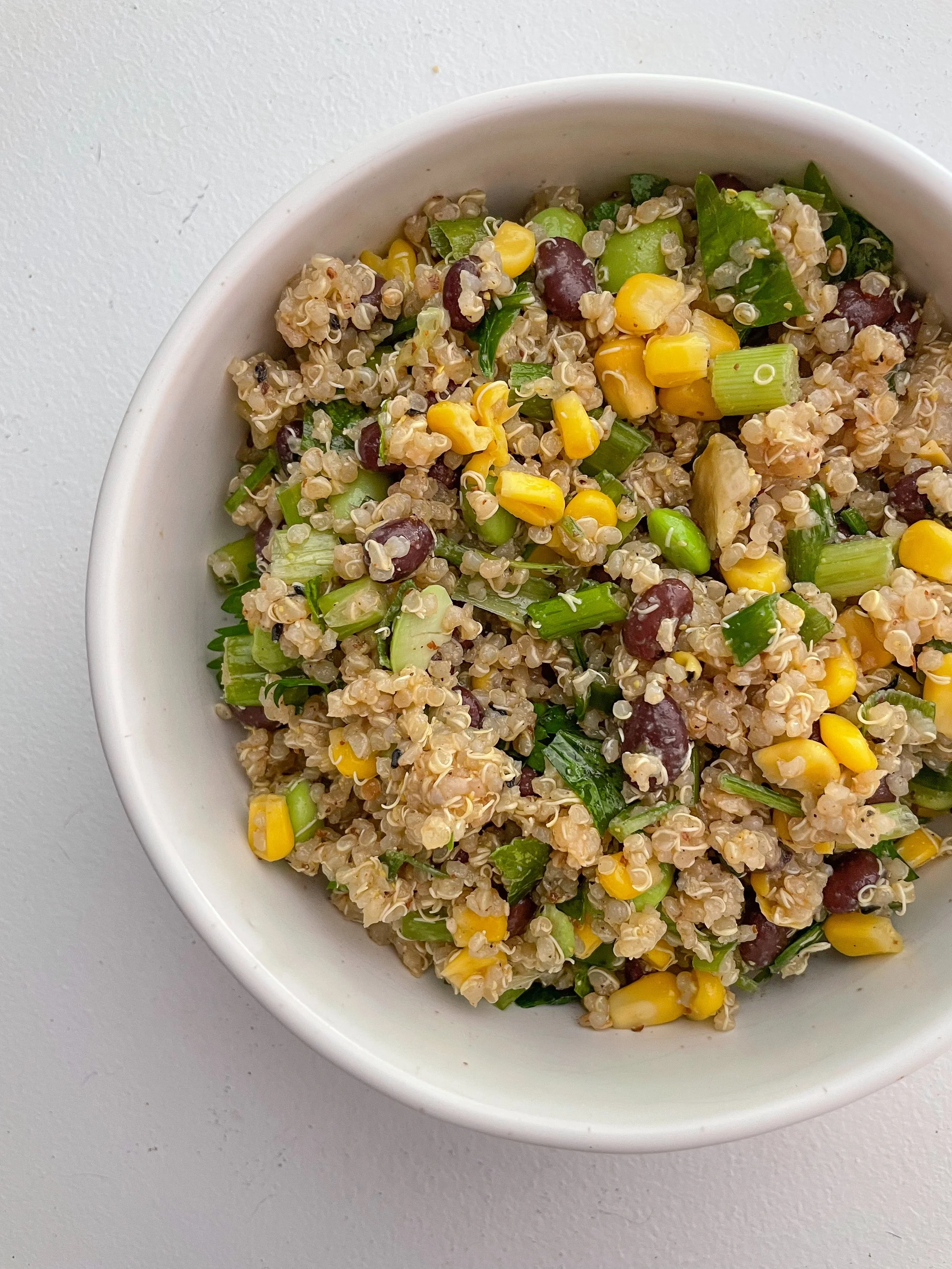Food Sensitivity Tests: Why I No Longer Recommend Them

A couple weeks ago, I did a reel on Instagram all about why I don’t recommend IgG testing. I used to use them in my practice when people felt like they couldn’t eat any foods and really needed answers. Now, I have invested into more training and have different recommendations.
Foods sensitivity tests are looking at Immunoglobulin G antibodies. The antibodies are released to protect us against foreign invaders. Whenever I used to get this test back, the results would always be the foods the client simply eats most often.
So, essentially, it tells us about EXPOSURE to certain foods. As a practitioner, I’m not going to tell them to avoid 30 foods, it just isn’t feasible, so why spend the money running this test? It also tells me, you have a leaky gut!

The BEST way to know if you are sensitive to a food is to eliminate it. I know, it’s hard work if there are several foods your gut may be reacting with. It will teach you to become more intuitive and if done properly, you should notice shifts.
I also don’t recommend leaky gut testing.
The goal is going to be to focus on eating foods that will heal your gut.
Your gut definitely needs healing if you are having a reaction to several foods. Combined with gut healing supplements and lifestyle recommendations, you will make big strides.
What test do I love and will recommend until I stop practicing? The GI-MAP!
The GI-MAP doesn’t tell you what foods to avoid based on exposure. To briefly summarize it, it’s looking at bad bacteria, commensal bacteria levels, H. pylori, parasites, candida, inflammation markers and so much more.
IgG testing is a bandaid solution and it’s not getting to the root cause. Why is the gut leaky?
Want to learn more? Head to this blog post to see if the GI-MAP test a good fit for you.
I offer 1:1 support and everyone gets a GI-MAP test include in the cost. I have an application form to ensure it’s a great fit for both of us. I cannot wait to support you!

Your guide to everything you need to know about protein. How much protein you need, meals ideas, plant-protein foods and perimenopause.
As a gut health nutritionist, I give you practical tips, plant-based foods high in iron and a recipe. I also explore reasons why your ferritin may be low.
There are so many different types of magnesium, it’s overwhelming. Thanks to my work experience student, we have complied a chart and a description of each type so you can make an informed decision. Curious to learn your magnesium levels, book in for a hair mineral analysis test.
A week of gut health tips to get your microbiome thriving! Easy to incorporate with a focus on diversity and plants by Jordan Bruce, a holistic nutritionist.
There is so much misinformation about soy consumption. Read why this nutritionist, Jordan Bruce, recommend you eat soy food.
Great for period pain, inflammation, liver detoxification, gut health protocols and hormone balance
Everything you need to know about flax! Why you should include it in your diet and how to prepare
Want to include more plant protein for health reasons? Not sure where to start? Here’s 9 of my favourite plant protein sources and my thoughts on each one!
Paleo? Keto? Let’s stop these short term diets and move towards something more sustainable. My top 6 gut health tips to ease into 2024
Everything you need to know about the bacteria H. pylori and how to support it naturally
Let’s dive into how you can improve constipation, I’ve got a tip for you! Cover image thanks to the book, Gut.
Your nervous system impacts your IBS, digestion, hormones and mood! Read up about the vagus nerve with actionable tips you can take today.
1/10 are diagnosed with endometriosis and it often takes a decade to get a diagnosis. Learn the symptoms here in this blog post!
Read this list to ensure you’re supporting your hormones! Food is powerful and can impact our sex hormones.




























